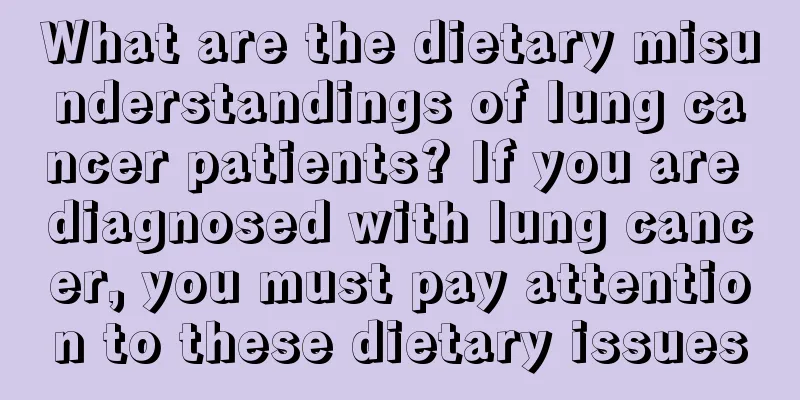What is myocardial infarction

|
Myocardial infarction is a type of heart disease, also known as myocardial infarction. It is a common human disease in real life. Myocardial infarction can easily cause dizziness or chest pain, as well as difficulty breathing, physical fatigue, or decreased body resistance. It can also easily lead to excessive heartbeat and temporary shock, and requires timely treatment. What is a heart attack? Myocardial infarction is a common heart disease. About half of myocardial infarction patients have precursor symptoms such as angina pectoris before the onset of the disease. The main symptoms of myocardial infarction are chest pain, palpitations, chest tightness, arrhythmia, dizziness, fatigue and some manifestations of hypotension. After a myocardial infarction, heart function will be seriously affected and symptoms of heart failure will gradually appear. The high-risk group for myocardial infarction is middle-aged and elderly people. Now let us take a look at the pathological changes and treatment methods of the disease. The mortality rate caused by myocardial infarction is extremely high. If the myocardial tissue is deprived of oxygen and blood supply due to various reasons and is not treated in time, it will directly lead to shock or death. Moreover, the symptom of myocardial infarction can lead to death very quickly, so when a myocardial infarction occurs, it is important to ensure that the patient is breathing normally. The principle of treatment for myocardial infarction is to save the myocardium on the verge of infarction as much as possible and reduce the area of infarcted myocardium. For patients with myocardial infarction, monitoring and general treatments can be adopted. In order to prevent the condition from worsening, it is best for patients to rest in bed. The patient needs enough time to rest and recuperate. Patients suffering from myocardial infarction should carry emergency medicines such as quick-acting heart-saving pills with them in case of emergency. In clinical practice, preventing coronary heart disease, a primary disease, is a fundamental measure to prevent myocardial infarction and is also an intervention measure for normal people. You should actively control your blood pressure and keep it normal. And we must actively prevent the occurrence of hyperlipidemia. You should have good eating habits, a reasonable diet, and ensure adequate calorie intake. Patients also need to quit smoking and drinking to avoid tobacco and alcohol stimulating blood vessels and causing lesions. Active prevention and treatment of diabetes is also essential to reduce damage to blood vessels, nerves and heart. Drink healthy water. Maintain a good attitude, avoid long-term stress, excessive mental tension and excitement. Develop good living and eating habits Precursors of myocardial infarction include 1. Chest pain at night or while resting Precordial pain when resting or at night is a precursor to a heart attack. 2. Worsening of angina symptoms If the symptoms of angina pectoris gradually worsen, or the chest pain occurs more frequently, becomes more severe, covers a larger area, and lasts longer than before, and if the chest pain symptoms cannot be effectively relieved after taking sublingual nitroglycerin, you should also be alert to the occurrence of "heart attack". 3. Chest pain without obvious cause Although you have suffered from angina pectoris in the past, there were obvious triggering factors, such as fatigue, excitement, etc. However, if you now experience chest pain symptoms in a quiet state without obvious triggers, accompanied by profuse sweating, vomiting, nausea, etc., you need to seek medical attention promptly. 4. Sudden panic and depression If you experience chest tightness, fatigue, or palpitations that you have never experienced before, or if you experience palpitations, shortness of breath, or if your symptoms worsen and tend to gradually worsen, you should seek medical attention immediately. This is a common precursor to myocardial infarction in many patients and requires special attention. 5. Pain in other parts of the body related to fatigue The phenomenon of body pain is related to fatigue, excitement, etc., and may cause upper abdominal pain, toothache, mandibular pain, left shoulder and arm pain, back pain, etc., which should also be taken seriously. |
<<: Acute myocardial infarction stages
>>: Effects and functions of mugwort foot bath powder
Recommend
Check what are the symptoms of lung cancer
Early symptoms of lung cancer generally include c...
What causes loose and green stools?
If your stool is unformed and green, you should p...
Why does my face turn red after running?
Everyone should be very familiar with the reactio...
What to do if your baby has a runny nose when exposed to a fan
It is quite common for babies to have a runny nos...
The place where the rabies vaccine was given is red and swollen
In daily life, if you are bitten or scratched by ...
How to clean a silicone bra
Silicone bras are common women's clothing. In...
What are the treatments for chronic gastroenteritis?
After patients develop chronic enteritis, most of...
Why are my fingers swollen, painful and numb?
Fingers are also part of the human body. Clinical...
What shoes to wear with a trench coat
Many people pay great attention to their outfits,...
How to treat advanced lung cancer
The patient, a 44-year-old female, was diagnosed ...
Hepatitis B treatment is slow in effect, when will it be cured?
In daily life, some patients are carriers of hepa...
Is kidney cancer hereditary in men?
Kidney cancer is a malignant tumor that mainly oc...
What should you pay attention to in your diet after lung cancer surgery? Two points to pay attention to in your diet after lung cancer surgery
There is no clear data to show that diet is a fac...
What to do if platelet count is low after radiotherapy
Patients who need radiotherapy need regular check...
There are small particles in the eye bags
Many people often find some greasy small particle...









